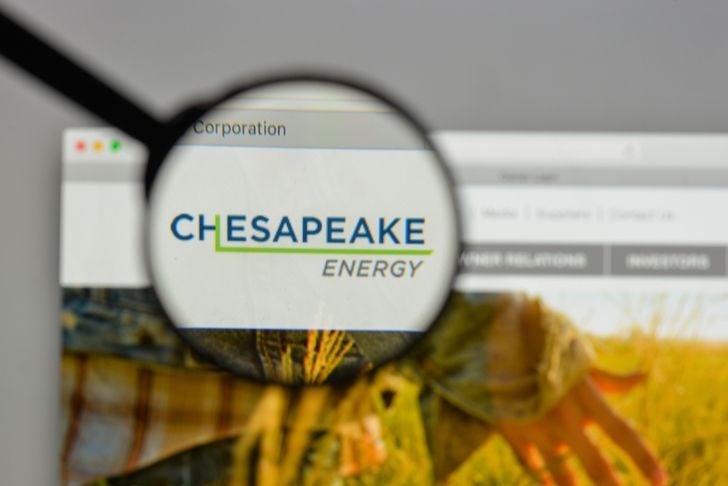In one sense, it seems like little has changed for Chesapeake Energy (NYSE:CHK). Since CHK stock tumbled below $2 in early 2016, its situation has been reasonably simple. CHK stock will reward investors handsomely if energy prices rise, but it carries a ton of risk (including potential bankruptcy) if energy prices fall. So Chesapeake Energy stock has been mostly range-bound, although its recent weakness has sent it to a multi-year low.
At the same time, an awful lot has changed for CHK stock. The company has sold a significant amount of land, including assets in the Utica shale earlier this year. It’s focused on its balance sheet and prudent cash management.
That’s a notable departure from the grow-at-all-costs strategy that drove CHK stock to its highs last decade and its lows this decade. Most recently, the company acquired Wildhorse Resource Development (NYSE:WRD) in a nearly $4 billion deal.
So far, though, all of these changes haven’t helped Chesapeake Energy stock. And it does seem like the company has been a victim of a bit of bad luck. At these levels, a contrarian, positive case can be made for CHK stock. But Chesapeake stock remains a high-risk play, as it’s been for some time.
CHK Stock Has Returned to Its Lows
CEO Doug Lawler clearly has tried to change Chesapeake since being named its CEO back in 2013. Given the mountains of debt CHK accumulated in past years and plunging natural gas prices, Lawler didn’t have much choice. By early 2016, as gas prices bottomed, rumors were swirling that Chesapeake was going to have to file for bankruptcy.
Chesapeake Energy stock now is back near those early 2016 lows, and there’s a sense that bad luck is at least part of the reason for the recent downturn. Chesapeake built itself into a natural gas behemoth, helping to pioneer fracking. Then natural gas prices plunged, devaluing its acreage and crushing its cash flow.
Natural gas prices now are rallying, thanks to predictions of a colder winter. And yet CHK is going in the opposite direction because after emphasizing natural gas so heavily, it’s shifted its focus to oil, only to see crude prices plunge.
The Wildhorse Acquisition
The irony is that the acquisition of Wildhorse seemed like a step in the right direction. Chesapeake Energy stock did fall on the announcement, and some observers saw the deal as a misstep. Research firm Bernstein, for instance, compared the deal to Range Resources’ (NYSE:RRC) acquisition of Memorial Resource Development. (RRC stock is down over 60% since that transaction).
But CHK stock recovered those losses in subsequent sessions, and the acquisition does make some sense from a strategic perspective. Wildhorse’s oil-heavy portfolio gave Chesapeake more exposure to crude (which seemed like a good thing at the time). And the stock-heavy deal (Chesapeake is ponying up at most $400 million in cash) will increase CHK’s profits while keeping its debt reasonably stable.
The deal does dilute Chesapeake shareholders, who will only own 55% of the combined company. And in that sense, it probably limits the ultimate upside of CHK. But it will also cause the company’s leverage ratio (debt to EBITDA) to fall under three in 2020, assuming energy markets cooperate. A lighter balance sheet and a more diversified asset base both give Chesapeake a better chance to weather any storms that come along.
The Case for Chesapeake Energy Stock
That doesn’t mean CHK stock can’t fall further. At this point, in the wake of the merger, Chesapeake Energy now has a market cap of more than $4 billion. Avoiding bankruptcy doesn’t necessarily mean that Chesapeake Energy stock will rise. And if oil stays in the $50s and natural gas prices pull back, the cash flow of the combined company starts getting low.
Meanwhile, the chart of CHK stock is ugly, and investors don’t need to go rushing to buy Chesapeake Energy stock. But at a multi-year low, CHK is intriguing. It’s not Exxon Mobil (NYSE:XOM) or BP (NYSE:BP); it’s not positioned to survive in all types of energy markets. That said, neither XOM nor BP has the potential upside that CHK does if those prices rally. And at least, CHK stock will probably benefit from increases in natural gas prices, particularly if crude finally stabilizes.
It seems like there’s room for CHK to rally sometime soon. The Wildhorse acquisition has created some noise, but it does make sense, and it does make Chesapeake more viable. If the company finally can catch a break from its end markets – and CHK sure seems due for one – CHK stock may bounce nicely off its lows, and at some point, finally, consistently move in the right direction.
As of this writing, Vince Martin has no positions in any securities mentioned.

